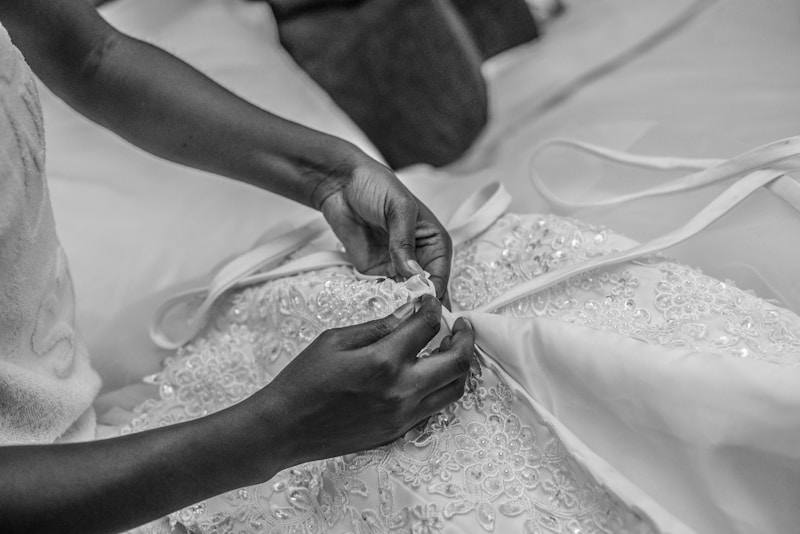The Uniqueness of Handmade and Bespoke Wedding Dresses in History
The Uniqueness of Handmade and Bespoke Wedding Dresses in History
Exploring the Timeless Charm of Handmade and Bespoke Wedding Dresses
Wedding dresses have long been a symbol of love, commitment, and artistry. The uniqueness of handmade and bespoke wedding dresses has a rich history steeped in tradition and personal expression. In this article, we will delve into the fascinating evolution of wedding dresses, the craftsmanship behind them, and the reasons why they hold such a special place in the hearts of brides worldwide.
A Historical Overview of Wedding Dresses
Throughout history, wedding dresses have evolved dramatically, influenced by cultural shifts, fashion trends, and personal preferences. The earliest recorded instances of wedding attire date back to ancient Rome, where brides wore simple tunics. As time progressed, the materials and styles became more elaborate. The Victorian era marked a significant turning point with Queen Victoria's choice of a white gown, laying the foundation for the modern wedding dress.
The Significance of Style and Fabric
The style and fabric of wedding dresses have always played a crucial role in defining their uniqueness. While modern dresses often showcase a variety of fabrics and silhouettes, handmade and bespoke options stand out for their meticulous craftsmanship and personalization. Brides who choose these dresses can select from a myriad of fabrics, such as silk, lace, and chiffon, forming a garment that truly reflects their personality and preferences.
| Era | Style | Fabric |
| Ancient Rome | Simple Tunics | Wool and Linen |
| Victorian Era | Elaborate Gowns | Silk and Satin |
| Modern Day | Diverse Styles | Lace, Chiffon, and Tulle |
The Art of Handmade and Bespoke Dresses
Handmade and bespoke wedding dresses are not merely garments; they are works of art that embody the creativity and skill of their creators. The craftsmanship involved in making these dresses involves numerous techniques, from draping and sewing to embellishing and fitting. Each gown is unique, taking into account the bride's measurements, preferences, and style, ensuring that every detail is tailored to perfection.

Benefits of Choosing Handmade or Bespoke Options
Opting for a handmade or bespoke wedding dress offers numerous advantages that mass-produced options simply cannot match. Here are some key benefits:
- Personalization: Every dress is designed with the bride’s vision in mind, allowing for custom designs, fabric choices, and embellishments.
- Quality Assurance: Handmade dresses typically feature superior craftsmanship and materials, resulting in a garment that not only looks exquisite but also feels comfortable.
- Unique Style: A bespoke dress guarantees that the bride will not encounter another bride wearing the same gown, making it even more special.
- Sustainable Fashion: Choosing a handmade dress often involves using locally sourced fabrics and techniques, promoting sustainability in fashion.
Modern Trends in Wedding Dresses
The trend of handmade and bespoke wedding dresses is experiencing a renaissance as brides seek individuality on their special day. Current trends include minimalistic designs, intricate lacework, and bold colors, allowing brides to break free from traditional white dresses. High-profile celebrities like Meghan Markle and Priyanka Chopra have embraced customized designs, further popularizing the idea of personalized wedding dresses.
Getting Started with Your Bespoke Dress
Planning for a handmade or bespoke wedding dress involves several steps to ensure your vision comes to life:
- Research: Look for designers who specialize in handcrafted dresses. View their portfolios and read reviews from previous brides.
- Budgeting: Determine your budget, as bespoke dresses can range from moderate to high-end pricing depending on the designer and materials used.
- Consultation: Schedule a consultation with your chosen designer to discuss your ideas, preferences, and any inspirations you may have.
- Fittings: Expect multiple fittings as your dress comes together. These fittings will help achieve the perfect fit and style.
- Final Touches: Before the wedding, review the final dress to ensure it aligns with your vision, making any last-minute adjustments necessary.
Unique Elements to Consider
When contemplating a handmade or bespoke wedding dress, think about incorporating unique elements that tell a personal story. This could include:
- Family Heirlooms: Use lace or fabric from family members' dresses to create a meaningful connection to the past.
- Regional Influences: Infuse elements inspired by your heritage, such as traditional patterns or designs.
- Color and Detailing: Break away from tradition with bold colors or personalized embroidery that reflects your personality.
Conclusion: The Lasting Impact of Handmade and Bespoke Wedding Dresses
The uniqueness of handmade and bespoke wedding dresses is more than skin deep. These garments, crafted with love and precision, carry with them the stories of the individuals who wear them. They represent not only personal tastes but also a rich history of craftsmanship and creativity. As the wedding industry continues to evolve, the allure of handmade and bespoke options remains strong, offering brides a chance to own a piece of art that embodies their journey. When considering your wedding attire, remember that the dress you choose will hold memories for a lifetime. Embrace the opportunity to create something truly unique, ensuring that your wedding day reflects your essence as a couple.
In further exploration of the topic, brides may seek out questions like: "How to find a bespoke wedding dress designer?" or "What are the latest trends in wedding dress styles?" These inquiries can provide additional insight into the beautiful world of wedding dresses.
Ultimately, when it comes to handmade and bespoke wedding dresses, each choice marks a step into a beautifully unique future, just as each stitch marks a step in a journey of love.
